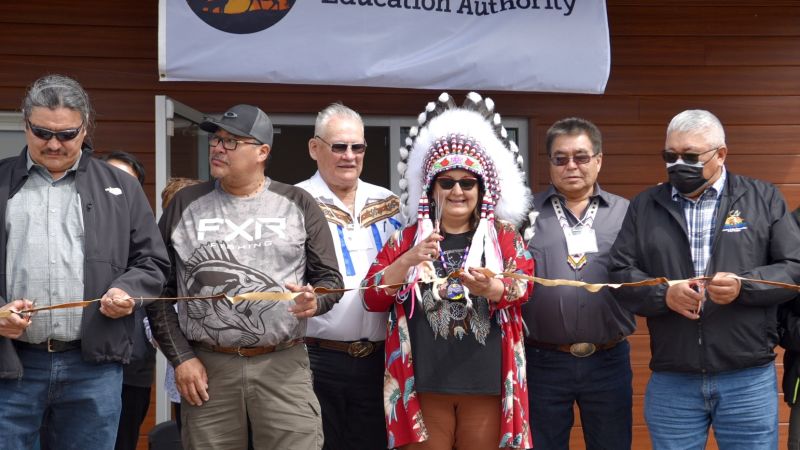
Caribou ribbon has been cut on Athabasca Denesuline Education Authority
Cutting a caribou hide ribbon Thursday afternoon was a message that the Dene of Saskatchewan’s Athabasca region are now in control of their own education.
Chiefs of all three participating bands, staff and guests celebrated at the main offices in Prince Albert yesterday, an emotional moment for Director of Education Gerry Guillet.
“When I look at and feel so proud of this day and where we’ve come in a short three years, my heart fills with emotion because I’m so proud,” he said.
The ADEA, as it is being called for short, has an agreement with Indigenous Services Canada (ISC) and the participating bands also have agreements with each other that give them complete control over the schooling of children in four schools.


